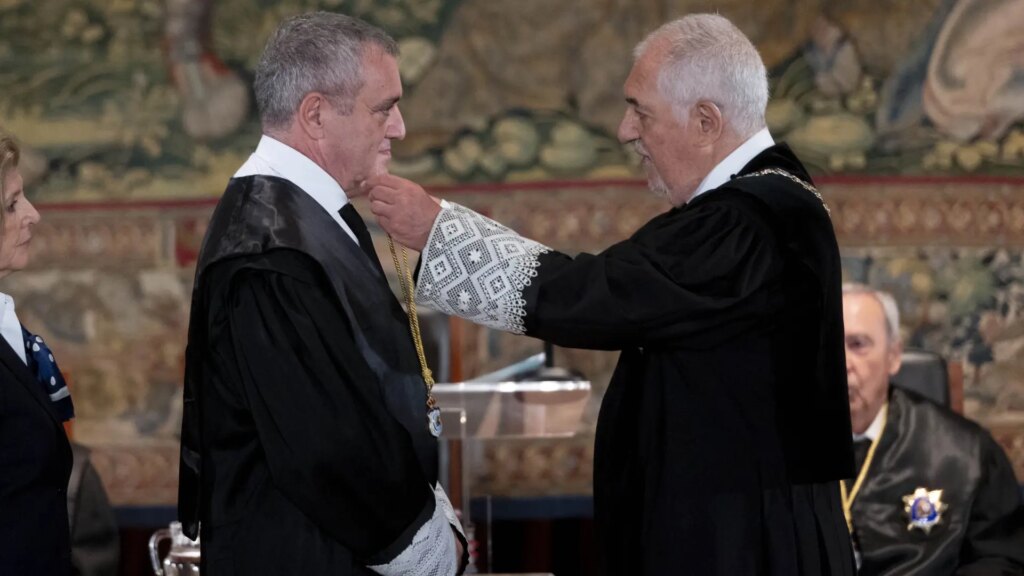
The Constitutional Court admitted this Tuesday the appeal of the Popular Party against the amnesty lawafter the Popular Parliamentary Group corrected some formal errors in the brief. In addition, the Plenary of the court has refused to remove Judge José María Macías from the debate on the amnesty.who had been challenged by the State Attorney’s Office. Macías himself, who ruled against the measure of grace when he was part of the General Council of the Judiciary, will be the rapporteur of the sentence that responds to this appeal of the PP, one among the twenty or so briefs that have been filed against the law.
The Constitutional Court has yet to resolve the challenges presented by the Prosecutor’s Office against Macías to try to remove him from the debate on other appeals against the amnesty. The State Attorney’s Office alleged in its brief that on March 21, Macias, as a member of the CGPJ, signed a report against the amnesty law. Having “occupied a public position” from which he had “knowledge of the object of litigation”, the State Attorney’s Office considered that Macías would not be impartial and should be removed from the debate.
But the Plenary of the Constitutional Court has refused to remove him, just as it dismissed the challenges presented against the president of the body, Cándido Conde-Pumpido, and the magistrate Laura Díez. Therefore, the only magistrate who will abstain from the debate is Juan Carlos Campowho decided to step aside because during his time as Minister of Justice he signed a document stating that the amnesty is “clearly unconstitutional”.
The reason that has led the Plenary to reject the challenge against Macías is that the State Attorney’s Office presented it “prematurely”. As explained by the court, the brief was filed on September 20, 2024, “before the Plenary had ruled on the admissibility of the appeal of unconstitutionality”. In short, the Constitutional Court holds that the challenge was formulated “out of time”. It should have been raised now, once the body of guarantees has admitted the appeal of the PP for processing.
The body of guarantees knows of no precedent of a debate that has given rise to the filing of so many recusals as that of the amnesty. Up to 54 petitions for the removal of various judges that make up the Plenary of this court. None of them has been accepted by the Constitutional Court. The first one to be addressed (once Campo had already withdrawn) was that of Cándido Conde-Pumpido. The reason why the PP tried to remove him is that this magistrate had already abstained from intervening in the debate on the sentence of the procés, due to some public statements he had made previously.
However, the Plenary considered that this was not a reason for recusal because the appeal against the sentence of the procés “does not coincide with the constitutional prosecution of a criminal law that did not exist” at that time. The Popular Party also tried to remove Laura Díez, who before joining the Constitutional Court had held several positions in the Ministry of the Presidency and Relations with the Courts.
The challenges against Laura Díez were based solely on the fact that Díez was director of the Cabinet of the Secretary of State for Relations with the Courts and later headed the General Directorate of Constitutional Affairs and Legal Coordination of the Ministry of the Presidency. This was also not sufficient reason for the guarantee body to consider that the magistrate should withdraw from the debate.
As for José María Macías, the reason for his recusal has to do with. the role he played in the CGPJwhich he left at the beginning of the summer. Macías was one of the members of the Council who was most active in criticizing the pardon measure. In addition, apart from his public statements, the magistrate signed several reports against the pardon measure.
More information coming soon
